Entertainment
The Man from Hollywood
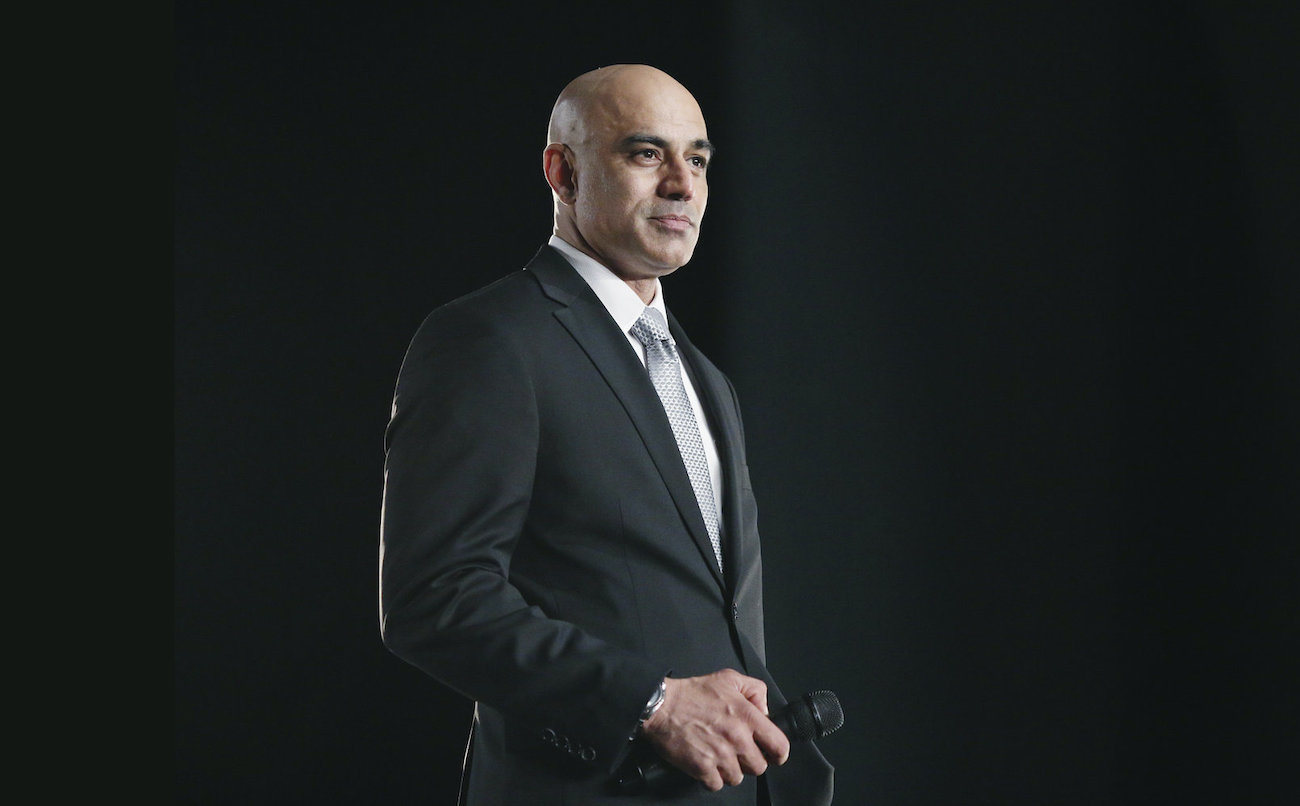
By Khursheed Hyder and Anum Ahmed
For people who have watched Iron Man or Star Trek, the name Faran Tahir comes to mind immediately. The laurels do not stop there – he has played the title role of Othello at the Shakespeare Theatre in Washington DC and performed in over 50 roles in major theatres across the US in classical and contemporary acts. Faran has been a Hollywood insider for over 25 years now and has starred in many TV series and films. His debut appearance was in Disney’s The Jungle Book in 1994 as Mowgli’s father. The star spoke about roles and the possibility of working in Pakistan.
You have worked in many Hollywood films and TV shows; how difficult is it to get a role for a non-American actor?
It is not easy and I won’t lie to you but I always find if anytime someone says no to me, that’s not rejection to me that’s fuel to my fire because if you take every no personally or get rejected or discouraged then where are you going to go? I can’t change the colour of my skin. I can’t change who I am as a Pakistani so I embrace that and make it my strength. I call it my USP – unique selling point.
You have done Broadway and played Shakespearean roles despite being from Pakistan. I think if you focus on trying to develop your merit, sometimes all those things that might hold you back disappear, so what I did was I got my Masters in Performing Arts, studied Shakespeare and tried to make sure that I could understand the spirit of it and how to use that diction, and that language because that’s what Shakespeare gives you. The question is not where you come from, it’s the question of understanding the real spirit of something.
Why haven’t you worked in Pakistani films where you have a fan base?
I would love to work here and a few times I was offered to me, but unfortunately because of logistics and sometimes if I don’t connect with the storyline, then there’s no point of doing it because then I can’t give it my all. To me, content is everything. I am hoping it will happen soon and that’s why I directed this play to perform in Pakistan, to start the process and reintroduce myself through theatre or whatever I can possibly come up with. If I look at the film industry right now I feel very encouraged because the path we are on is actually creating our own distinct voice. For the longest time, our movies and our content was very monotonous. We are finally coming to a point and on the verge of exploring the new genres and exploring new issues.
Tell us about your performance on-stage with your brother Ali Tahir and your experience directing in Pakistan for the first time.
Nervousness is not in my lexicon so I bypass nervousness and fear. I look at fear as energy and channel that energy into my work and leave it to the audience. To be honest, I love criticism because sometimes constructive criticism makes me want to do better but yes, if someone is criticising me maliciously then I am not going to take it.
Coming from a family that is into acting, I started off from the mirror of my bathroom and used to act in front of it. My parents wanted me to make sure that their children had a normal childhood. I grew up literally backstage. I would come back from school and my playground was the costume shop, the makeup room and I used to know everyone’s lines at the tender age of just five. After the show, I used to give them their notes and point out which lines they had missed. In a way, it was great because I could then experience regular life and what do we do when we are trying to act.
When did you start acting?
I started proper acting when I was a freshman in college in US and when I came back, the first play which I did was written by Bano Qudsia and my mother and I acted in it. I have done a few plays in Pakistan, back then my brother Ali Tahir was doing a TV serial named ‘Samjhauta Express’ on PTV and I was in that too. We picked this play ‘Bhai Bhai’ which is a dark comedy to pull people in with laughter, but there is an underlying message which is a real commentary on the society today that we move in, so it had to have that balance. As far as the audiences are concerned, I think every audience whether it is here or from England, the US and other places, creates unspokenly a similar culture. It does not matter when you are doing it as long as the audiences are engaged and you are doing an honest piece of work. It works out. Play ‘Bhai Bhai’ wasn’t for an average person; it was for a certain class.
Your father Naeem Tahir is a pioneer of theatre in Pakistan, how will you carry his legacy forward?
By being honest in whatever I do. The thing I love about my father is that he has worked witout an ego and has always taught me to do my best, and there is nothing you cannot succeed in as long as you work on it. His legacy to me is his untiring effort and that’s what I want to do.
You have worked with Mahnoor Baloch in Hollywood movie Torn. Tell us your experience.
It was really good and we clicked from the very first day; when somebody has talent you know it and you know it’s going to raise your bar also. Similarly, I just worked in an upcoming movie ‘Forbidden Steps’, semi-produced it and we brought Qavi uncle to the US to play my father. The other thing that we must do is start to promote our own legends. We can go to other countries and have them cast there, we have so much to offer to this world and shouldn’t keep our gems hidden. It was not only a pleasure working with Mahnoor Baloch and Qavi uncle but also an honor.
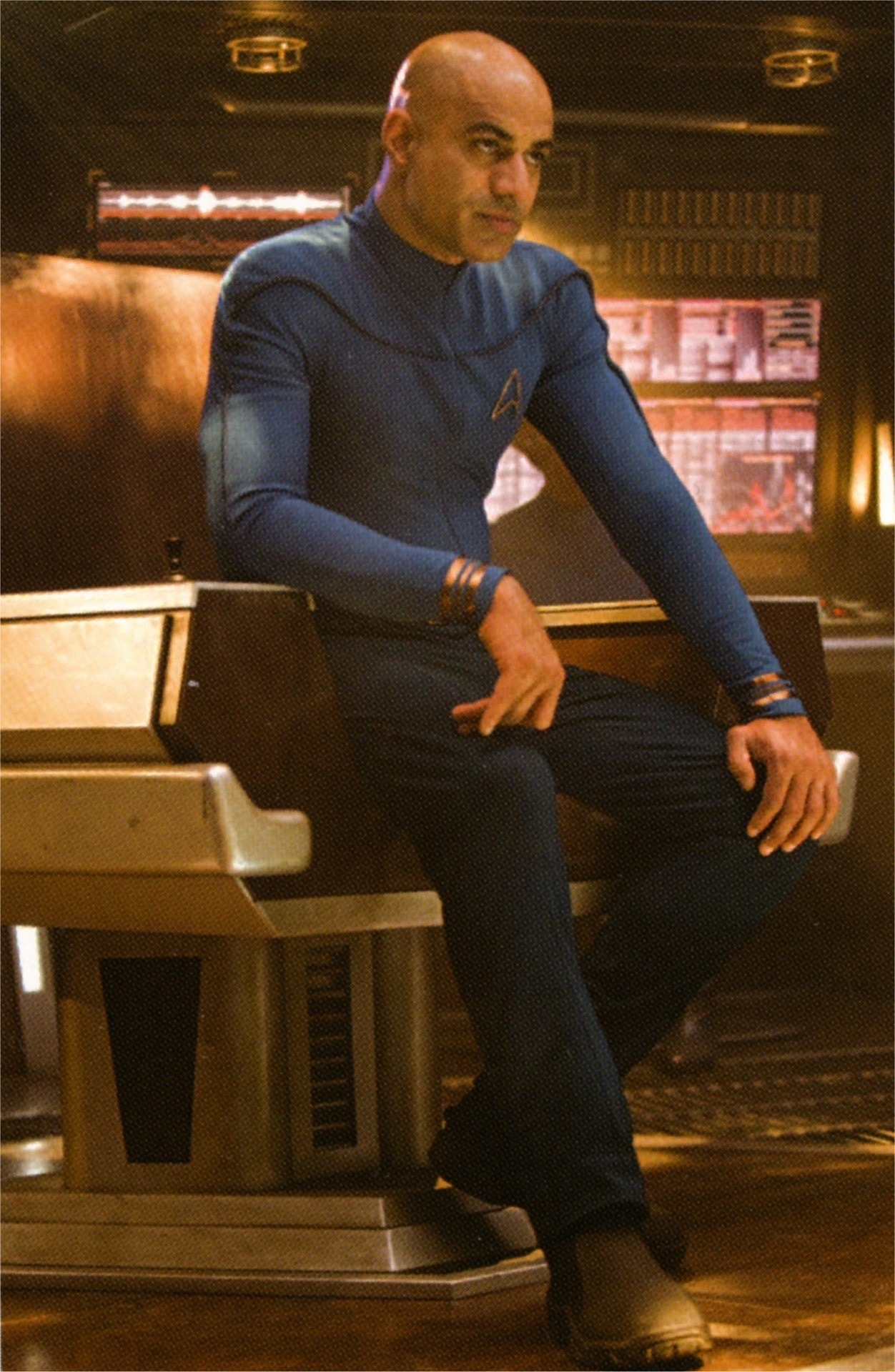
How was the experience of becoming the first Pakistani to star in a Marvel film and Star Trek?
Doing a Marvel film or Star Trek takes you back to being a 10-year-old boy. As a Pakistani, I must give my best, and it’s a merit that makes Pakistan shine as well and what makes me and my country proud. Most of all my dream roles of course are classics, like I was blessed to be part of Othello, which is a huge Shakespearean play and now I want to do something different whether I fall or succeed. One of my teachers once said that ‘If you fall back you are resisting, if you fall forward, you are adventuring, so always fall forward and take the risk and see where you go with it.
In the next five years, I see myself as an honest storyteller. Perhaps as a producer or an actor of what I am very passionate about and find the means to bring it to people.
Your message to aspiring artistes.
My message would be to always dream big and always be ready, work hard to turn those dreams into reality. I have been there and there were times I had no money and lived from hand to mouth, but I do not take that as an embarrassment. In fact, I wear that as a badge of honor. All your failures must be faced with bravery and humility, and your successes must be faced with grace.
In Tune
Abdul Rafay: A Voice with a Soul
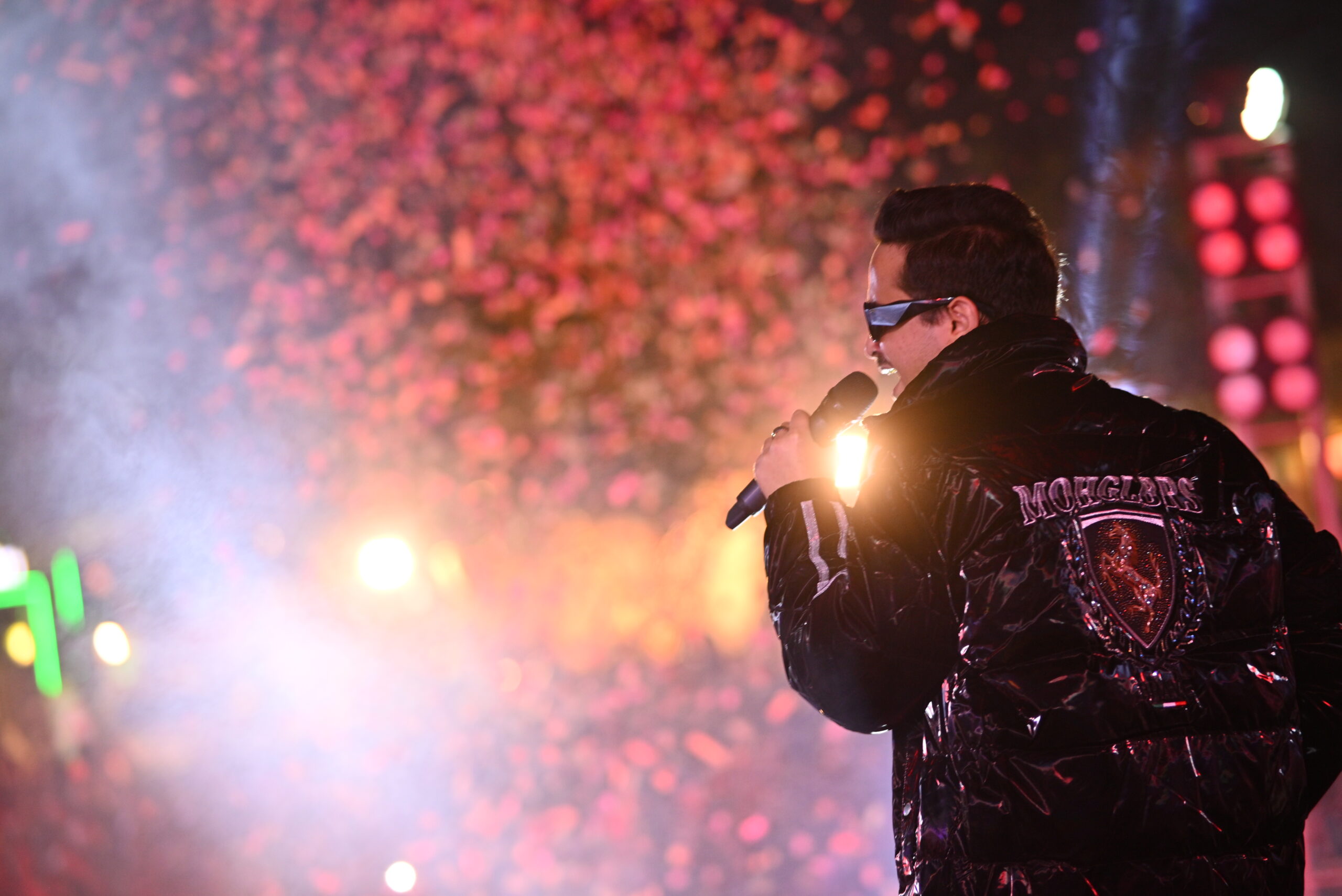
In the vibrant world of music, where every note tells a story and every lyric speaks to the soul, Abdul Rafay stands out as a voice that resonates with emotion and depth. His melodic journey began at home, with an elder brother whose passion for music lit the first spark. A simple introduction to a classical music teacher became a turning point, as the guru recognized Rafay’s talent—a voice reminiscent of the classical Patiala gharana. From that moment, Rafay’s path in music was destined.
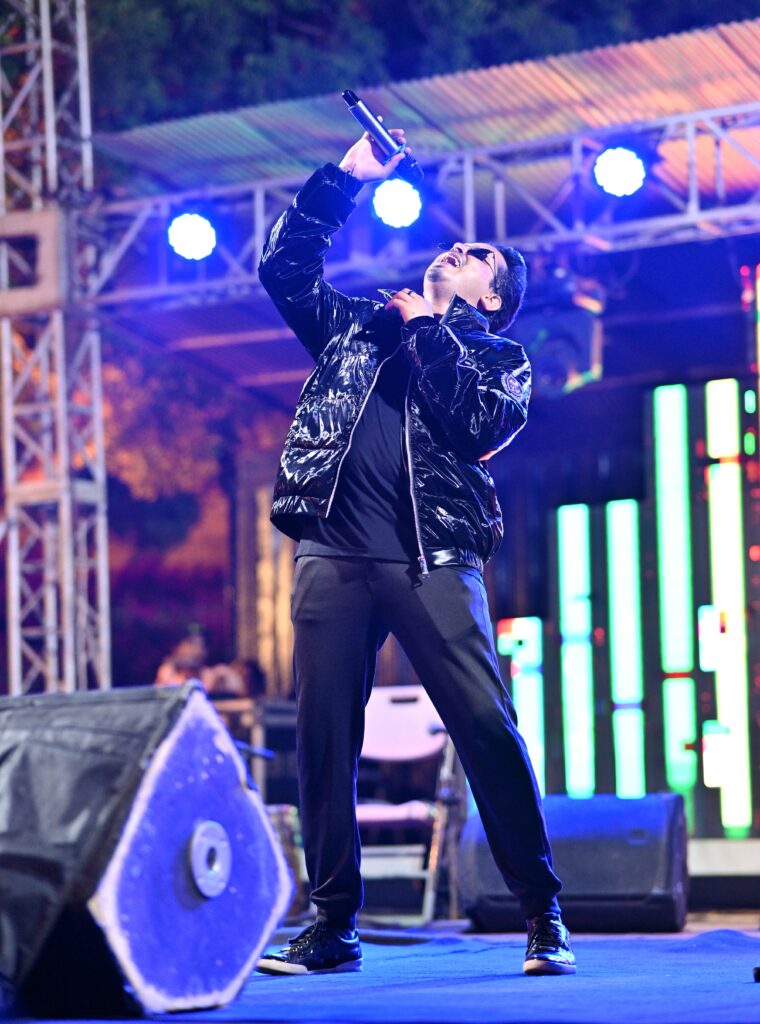
Under the mentorship of Intezar Hussain at NAPA, Rafay’s talent blossomed. “Sir Intezar was more than a teacher, he was a mentor who pushed me to explore, innovate and perfect my craft,” Rafay shares. This guidance not only honed his classical roots but also introduced him to the nuances of stage performance and vocal versatility.
At just 13, Rafay’s win at the Youth Festival, competing against seasoned vocalists proved his mettle. “That moment was surreal,” he recalls. “It was a validation of my hard work and the first major milestone in my life.” The nation’s interest for Rafay deepened during his stint as a finalist on Pakistan Idol. His soulful performances captivated millions, propelling him onto international stages and into the hearts of fans across continents. “Pakistan Idol was a game-changer,” Rafay says. “It opened doors I hadn’t even dreamed of.”
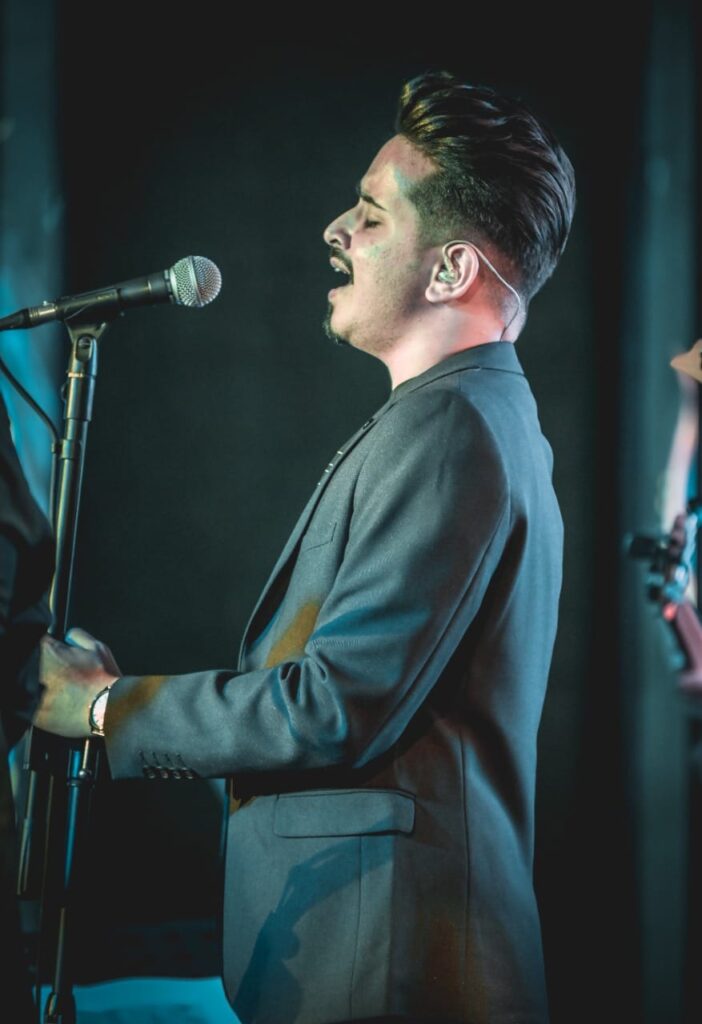
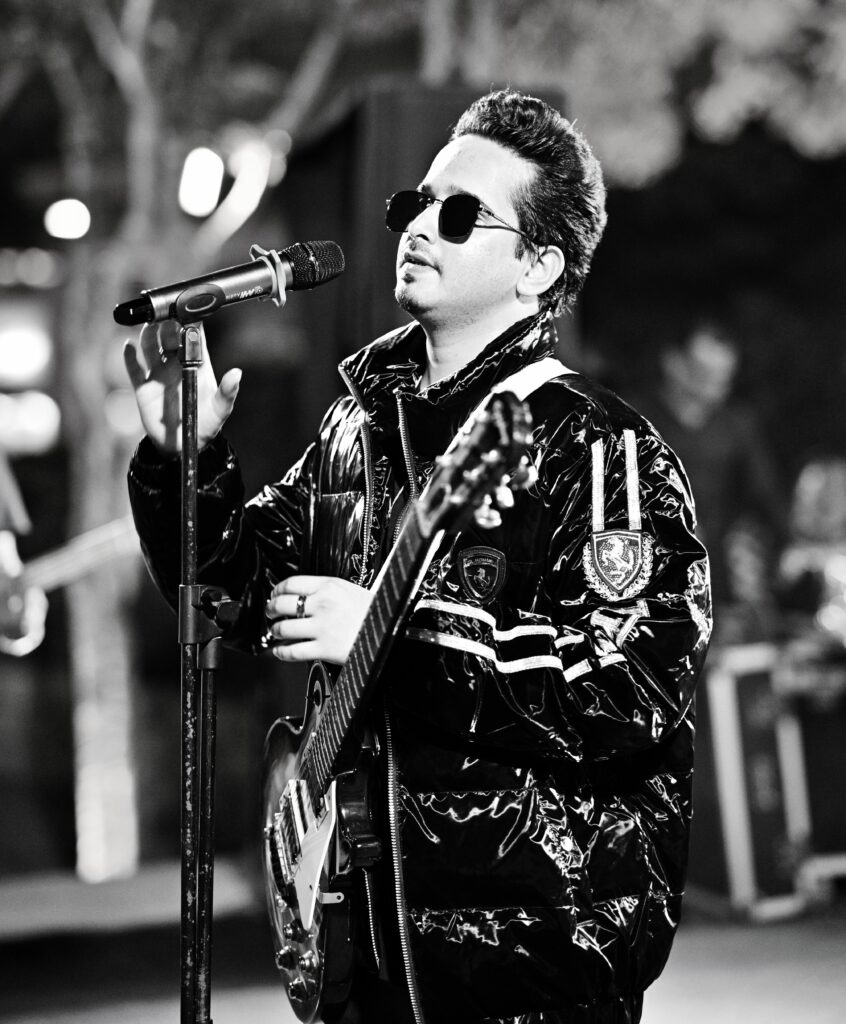
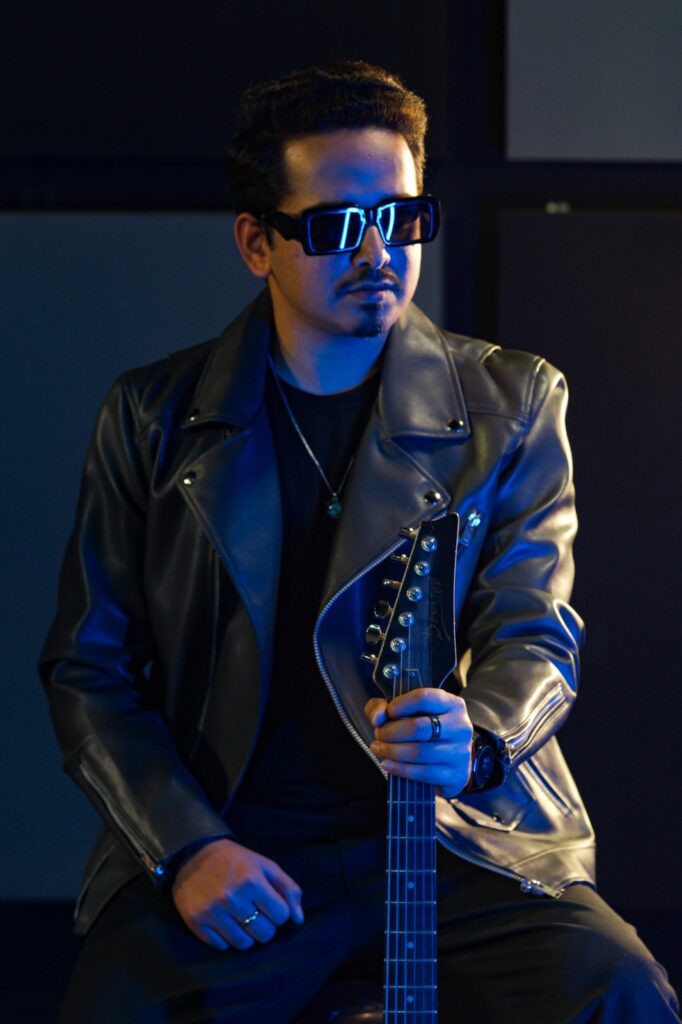
In 2019, Rafay’s contributions to patriotic music earned him the prestigious Pakistan Peace Award from the Air Force. “It was an honour to be recognized for something that resonates so deeply with me—using my voice to uplift and unite.” Sharing the stage with legends like Abida Parveen, Ali Zafar and Sonu Nigam has been another feather in Rafay’s cap. “Sonu Nigam’s humility left a lasting impression on me. It’s these experiences that fuel my passion to keep growing and learning,” Rafay reflects.
Rafay’s discography is as impressive as his journey. From the heartfelt Na Hone Du Juda for B4U Music in India, to the soulful Woh Pyar Tha for Bol Beats, his voice has resonated across borders. His song Piyaaa with Laal Series showcases his versatility, while the patriotic Khaak Ki Qasam stirs national pride. Rafay has also lent his voice to popular OSTs like Apne Hei Tu Hain for Green Entertainment and Main Hun Kahani for Express Entertainment, cementing his place in the hearts of drama enthusiasts. His musical style is a blend of classical rigour and contemporary flair, drawing inspiration from artists like Arijit Singh. “Classical music is my foundation, but I enjoy experimenting with genres, always staying true to the essence of each.”
His journey hasn’t been without challenges. Navigating the music industry without connections has been tough, but Rafay’s resilience remains unshaken. “I focus on improving my craft, believing that opportunities will come when the time is right.” Looking ahead, Rafay is excited about upcoming projects, including original soundtracks and collaborations. “I’m also keen on exploring international collaborations. Music is a universal language, and I want to use it to bridge cultures and connect people.” For young, aspiring singers, Rafay’s advice is: “Stay true to yourself, work hard, be humble, and let your authenticity shine through. Success will follow.”
Reflecting on his journey, Rafay cherishes every moment, especially those with his mother, his unwavering supporter. “Her belief in me is the cornerstone of my success,” he says. As Rafay continues to enchant audiences with his soulful voice and heartfelt performances, his legacy of authenticity, passion and perseverance is one that will inspire generations to come.
In Tune
Carving His Own Niche
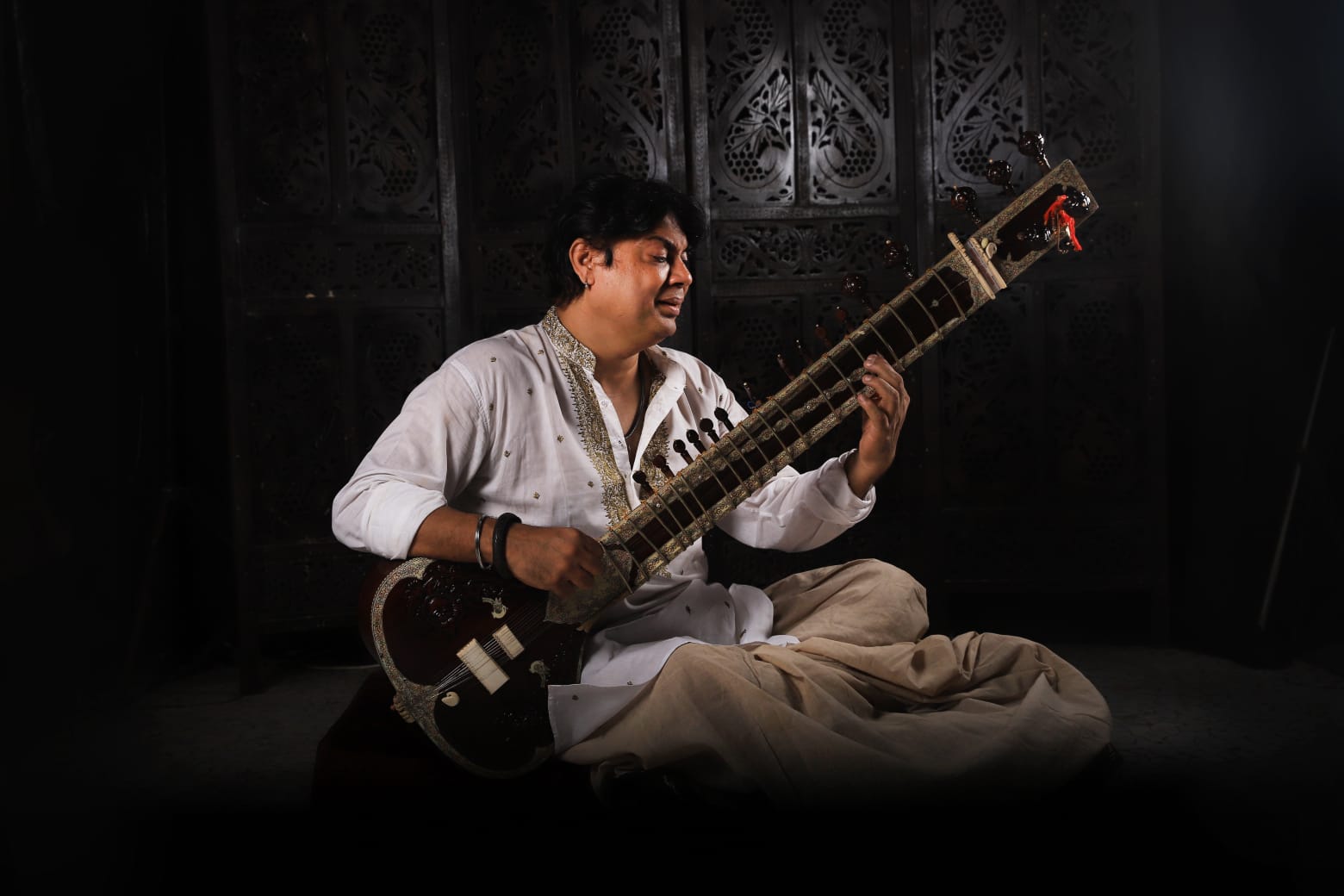
By Ayman Munaf
Suhel Rais Khan, the son of the legendary sitar maestro Ustad Rais Khan, carries a rich musical heritage. Born into a family of extraordinary artists, he has carved out his own unique path in the world of music. Currently visiting Pakistan from India to see his ailing aunt, Suhel was invited to perform—an opportunity that has allowed fans to witness his musical prowess firsthand. During our conversation, he talked about his journey, inspirations, and the evolution of his craft.
Q1. Can you share some of your earliest memories of music and how they influenced your decision to pursue a career in this field?
I grew up in a boarding school called Barnes, one of the top ten British schools in the world. Before that, when I was with my father, I wasn’t interested in classical music at all. Like most people, I was into pop and rock. But when I returned and saw the immense respect my father commanded in the world of Indian classical music, I was drawn to it. It was in my blood, so the transition was natural. The way people revered him inspired me, and once I started exploring classical music. I genuinely fell in love with it.
Q2. Growing up as the son of the legendary sitarist Ustad Rais Khan and the talented dancer Tasneem Khan, how did your parents’ artistic backgrounds shape your musical journey?
My childhood was complex. My parents divorced and my father moved to Pakistan, so I didn’t get a chance to learn directly from him. When I returned from boarding school, I was introduced to my father’s side of the family. My aunt (Bua) was the world’s best Surbahar player. She showed me her work and played my father’s music for me. That’s when I began collecting his tapes.
After nearly 20 years, I finally met my father. Initially, I was reluctant, but after meeting him I felt peace. He heard me sing and encouraged me to play the sitar. My mother, though naturally artistic, didn’t pursue a classical career. But I was fortunate to learn from incredible women like Madhurani Ji, one of the top singers in the world, and Sitara Devi, who taught me dora tukras. In London, I trained under Priya Didi and spent time with senior artists, gathering knowledge from different corners of the classical world.
One thing that needs to be acknowledged is that the song Gungroo Tut Gaye was originally composed and sung by my father, Ustad Rais Khan. Unfortunately, many artists have falsely claimed it as their own composition, which is deeply unfair.
Q3. You completed your formal education at Barnes and were actively involved in music, singing, and drama. How did this academic environment contribute to your artistic development?
Honestly, formal education only provides the basics. The real learning comes from your guru. I initially focused on singing and later realized the importance of playing the sitar. Creating music is expensive—so I opened my own studio, where I learned recording, editing, composing, and arranging. Eventually, I started working on my own albums and recording other artists.
Q4. Can you discuss the significance of your training under your father and how it has influenced your approach to music?
I only had two months of formal training with my father before he passed away. I absorbed whatever I could in that short time. While he profoundly influenced me, I developed my own distinct style. My father trained several successful artists, including Ahmed Jahanzeb.
Q5. Your music blends traditional Indian classical elements with contemporary styles. How do you balance these influences in your compositions and performances?
It all comes down to the sound—what you want to present to the world. My music doesn’t resemble anyone else’s. I usually sing my own compositions, but sometimes when audiences aren’t ready for change, I adapt. There’s nothing wrong with singing another artist’s song, as long as you infuse it with your own style.
Q6. Who are some of the artists, both within and outside the classical genre, that have inspired your work?
Legends like Sonu Nigam, Hariharan, Farida Khanum, Noor Jehan, Salamat Ali Khan, Fateh Ali Khan, Ghulam Ali and Roshan Ara. Music is diverse—everyone has their own preference, and no genre is inherently bad. It’s about what resonates with you.
Q7. Can you walk us through your creative process when composing a new piece?
I can compose very quickly. Give me a line, and I can create a melody in 10 seconds.
Q8. How do you decide when a composition is complete and ready to be shared with the audience?
I know once I hear the lyrics and understand the genre—whether it’s pop, rock or ghazal. I often test compositions by having my students sing them their own way before finalizing the recording. I incorporate elements of ‘80s-style melodies while keeping them accessible to the general audience.
Q9. You’ve performed at various national and international events. Is there a particular performance that stands out in your memory?
My performance in Calcutta is unforgettable. Just as I was about to start, the famous Bengali actress Moon Moon Sen entered in a black saree with a black bindi. I was so mesmerized that I completely forgot my song! I had to stop for five minutes, just looking at her, before she finally said, “Suhel, I’m here. Start your performance.” That moment is etched in my memory.
Q10. How do you prepare for a live performance and connect with your audience?
A successful artist knows how to keep the audience engaged. If I see the crowd isn’t interested in the song, I change the song on the spot. My musicians and I are always ready to improvise.
Q11. What are some significant challenges you’ve faced in your musical career?
I don’t focus on challenges—I focus on my work. I’m Ustad Rais Khan’s son, and my music speaks for itself. I’ve worked with the biggest artists worldwide and have over 40 albums. I don’t compare myself with others; I do what I love. I’m the only sitarist, singer and composer with 600 videos on air, and I’ve even made it to the Guinness Book of Records.
Q12. Receiving the Mitr Pradhan award at 25 was a notable achievement. How did it impact your career?
It was my first award, but it wasn’t heavily promoted. Whatever recognition I’ve earned has been through my own hard work.
Q13. Are there any upcoming projects or collaborations you’re excited about?
I continuously collaborate with artists across genres. Recently, I worked on Fusion for Roland. I believe in supporting talent, even if an artist isn’t famous or wealthy—if they’re good, I’ll work with them. I learn something new every day.
Q14. What are your aspirations for the future, both personally and professionally?
I am content with what I do. I’ll continue making music and exploring new sounds.
Q15. How do you see the role of classical music evolving in the digital age?
Music is evolving, and the key is packaging it correctly. To stay relevant, artists must adapt and present their music in a way that resonates with today’s audience.
Q16. Your younger brother, Farhan Rais Khan, is also a talented sitar player. Do you guide him as an elder brother now that your father is no more?
Farhan has learned from our father and plays better than me. I have my own style and draw inspiration from legends like Ravi Shankar and Vilayat Khan. I’m very close to my brother in ways beyond just music.
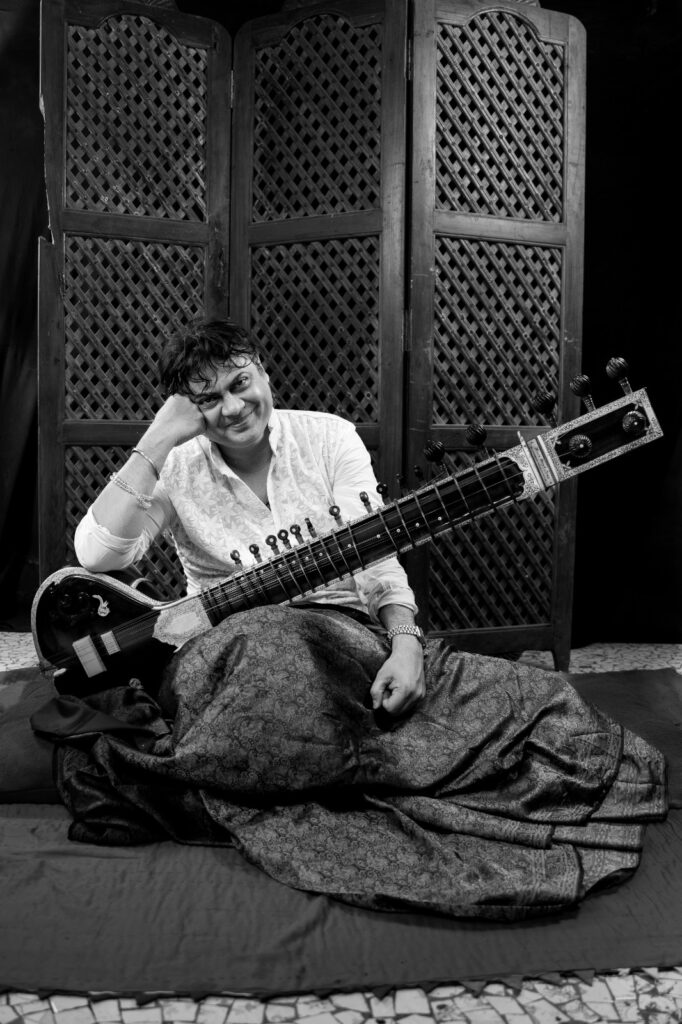
In Tune
A Passion for Melody: Ayat Sheikh
By Ayman Munaf

In the world of Pakistani music, where each voice brings its own shade of emotion and storytelling, at just age nineteen Ayat has carved a place for herself as a soulful and introspective artist, blending emotion and depth into every note she sings. Her journey began at the tender age of eight, singing in school tableaux and the audience’s applause sparked her love for music. Her family’s unwavering support and their encouragement nurtured her passion and what started as a child’s love for singing transformed over time into a deep-rooted dedication to her talent. Today, Ayat is known for her private gigs, concerts and studio projects each one a testament to her dedication and talent.
Ayat’s first major breakthrough came a year back with her rendition of ‘Mora Saiyaan’ for the film ‘Teri Meri Kahaniyaan.’ “The film had three different stories, and my song was part of the second one, a story about a singer. Watching that scene on the big screen with my family, knowing it was my voice, was surreal. I felt butterflies in my stomach, and I even teared up out of happiness. It was a moment of pride and emotion,” she recalls. One of her most challenging experiences with ‘Mora Saiyaan,’ was singing in Punjabi as it wasn’t her native tongue. With guidance from her father and music director Jawad Hyder, she overcame the language barrier, mastering the song in just two hours. This accomplishment solidified her belief that with passion and determination, no obstacle is insurmountable. Emotion, she believes, is a critical component in music, especially in songs that accompany powerful narratives. Ayat acknowledges that it’s an ongoing journey of learning, committed to improving at every step. She approaches each project with openness, learning to communicate the right emotions with every performance.
For Ayat, succeeding in Pakistan’s music industry requires more than just vocal talent. Quick memorization and the ability to adapt melodies are qualities she views as essential, and she’s diligently working to hone these skills. Her musical identity, however, is rooted in a more soulful, relaxed style, contrasting with the energetic ‘dhoom-dharaka’ music often popular in the industry. “I resonate most with slower, relaxing music,” she says, emphasizing her love for calm and soothing melodies. As a fan of soulful melodies, she finds inspiration in the unique style of her favourite singer, Sunidhi Chauhan, whose voice she deeply admires. One song holds a special place in her heart—Lae Dooba by Sunidhi Chauhan, which she has re-sung. Ayat admits that she doesn’t always enjoy hearing her recorded voice, a common sentiment among artists, but she accepts it as part of her growth journey.
Criticism, especially in the digital age, is something she navigates with grace. Ayat keeps her focus on positivity, avoiding the distractions of hateful comments that could detract from her growth. In this era of digital transformation, platforms like YouTube have opened up new avenues for artists, and the young singer has embraced this change, recently launching her own channel. She views digital platforms as a bridge, connecting artists directly with their audience and offering invaluable exposure.
Looking ahead, Ayat has set her sights on one of Pakistan’s most celebrated platforms: Coke Studio. Performing there is a dream, a goal she hopes to achieve as she continues to develop her artistry. Behind the scenes, she keeps her voice in top condition with a dedicated regimen of vocal exercises—sargams, paltay, and samraags—practiced diligently each morning and night.
Reflecting on the industry she loves, Ayat expresses a desire to see a more merit-based environment. “I’d want to address nepotism,” she says, advocating for equal opportunities for all artists based on talent alone.
In a landscape rich with evolving sounds and stories, Ayat is a breath of fresh air, a singer with a heartfelt commitment to her craft and a vision for the future. Through each note she brings a touch of soul, creating a unique place for herself in the world of Pakistani music.
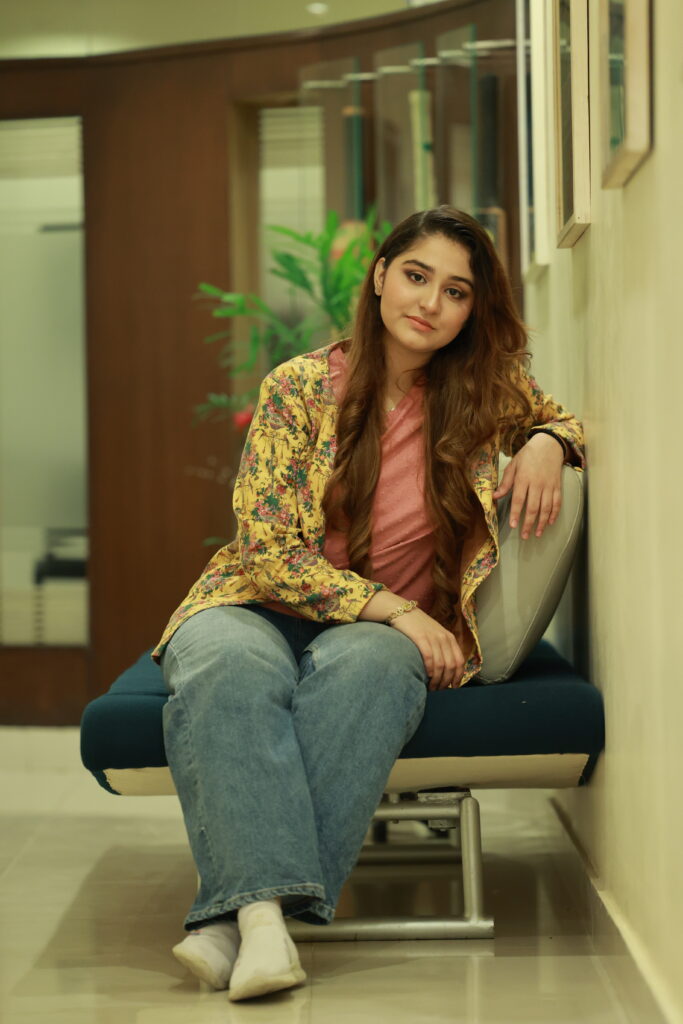
-

 In Tune2 months ago
In Tune2 months agoAbdul Rafay: A Voice with a Soul
-

 Fashion2 months ago
Fashion2 months agoShirin Farhad Photo Shoot
-

 Happenings2 months ago
Happenings2 months agoEmpowering Women Through Mobility
-

 Fashion2 months ago
Fashion2 months agoFashion Shoot
-
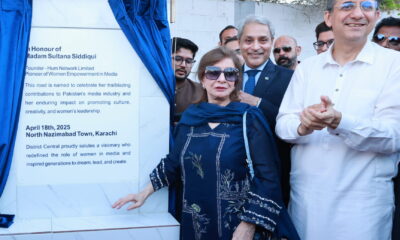
 Happenings2 months ago
Happenings2 months agoKarachi names road after Sultana Siddiqui
-

 Cover story2 months ago
Cover story2 months agoAhsan Khan – The Shape-Shifter of Diverse Roles
-

 Happenings2 months ago
Happenings2 months agoKarachi Gymkhana, A.O. Hospital and Clinic-South Host Cricket Festival 2025
-
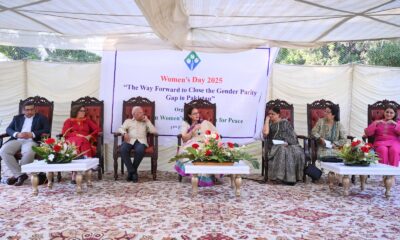
 Uncategorized2 months ago
Uncategorized2 months agoPakistan Women’s Foundation for Peace






